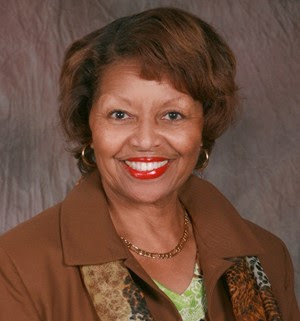By Sheila Ramerman

Julia Brown, AAUW National Board Chair
On Sunday, March 21, AAUW Oregon co-presidents Pat Lehman and Sue Klumph hosted an online Town Hall, featuring AAUW National Board Chair Julia Brown. Brown gave an overview of the work the board is doing, presented work and discussion to date on the proposed bylaws change to remove the requirement to hold a degree, and responded to questions and comments from the group.
Over 50 members from across the State were in the meeting, and we heard a summary of the national online Town Hall to discuss the bylaws amendment. All of the feedback from the national town hall is posted on the AAUW website. In general, most members speaking up were in favor, and the prevailing comments were related to remaining mindful of AAUW’s mission (advancing equity for women and girls); that education, knowledge, and capabilities come from life experience as well as from formal studies. Julia Brown reminded us that many women of distinction – Eleanor Roosevelt, Maya Angelou, Lilly Ledbetter, Oprah Winfrey – did not go to college or did not finish college.
Julia herself wasn’t always a fan of removing the degree requirement, but from her involvement in a branch Tech Trek program, she saw girls, who wouldn’t otherwise have considered college, realize that it was possible. Some girls realized that college wasn’t always necessary; there were vocational paths that would get them to where they wanted to be.
Julia emphasized that AAUW’s mission and values will not change. AAUW will still encourage a college education, will still have its fellowship and grant programs, and branches will still have scholarship programs. She also emphasized that the proposed bylaws change is NOT an effort to increase membership. When the bylaws were amended to allow men to become members and when holders of an Associate degree were allowed to become members, the net effect on membership for BOTH groups was about 2,000 new members.
There is more information available here https://www.aauw.org/resources/member/governance-tools/national-election/faq/.
One comment posted in the chat seemed to sum up most attendees’ view: “Inviting women at all stages of their lives to join AAUW does not mean that we are going to stop encouraging women to become better educated, but perhaps it may mean that we encourage not only community college and university education but also the trades. We are reaching out to help women become all they can be and to influence legislation in support of women and equity in all areas.”
It’s difficult to know if any of the attendees oppose the bylaws amendment, given that most of the comments were in support. As your branch president, I ask that you each vote your conscience.
Other topics discussed included the board’s current challenges being dealing with the pandemic and funding. The restricted funds’ balances are over $160 million (yes MILLION) dollars and the board estimates that it can continue to fund the programs in the restricted funds for 120 years into the future. By contrast, the unrestricted funds are those that must be used to fund new programs and are not funded nearly to the same extent. Because the restricted funds can’t be used for anything other than what they’re designated for, the board struggles to find the funds to expand into new areas or programs.
The online Equity Network has been a big success. Over 30 webinars have been recorded to date, are posted on the AAUW website, and both young women and young men are taking advantage of the information and materials to help them advance in their careers.
